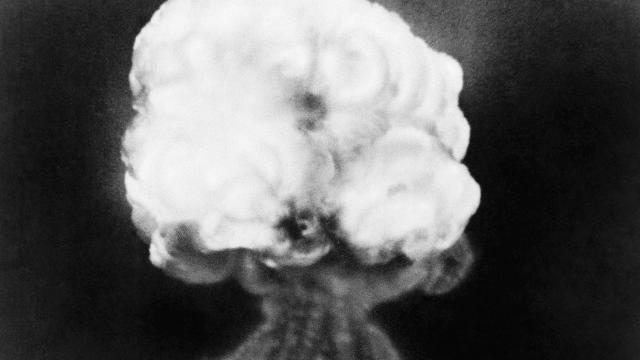A new test developed by scientists at the Los Alamos National Laboratory in New Mexico can potentially alter what we know about the nuclear tests done as a part of the Manhattan Project.
The mushroom cloud at the Trinity Test Site in New Mexico on July 16, 1945 (Image: AP)
According to Popular Mechanics, the test involves using just a pinch of dirt. That small amount contains large amounts of information, which scientists used it to determine the true scope of the Trinity Test, the first nuclear detonation conducted by the United States in 1945.
In a paper published by the Proceedings of the National Academy of Sciences, Susan Hanson, a nuclear chemist at Los Alamos and leader on the project, writes that soil can be tested for molybdenum, an element that is created as zirconium, which is used in many nuclear weapons, decays. By detecting the amounts in a soil sample, along with determining the amount of plutonium in the debris, Hanson and her team can determine how large a blast may have been.
In the case of the Trinity Test, scientists noted that previous measurements were off. Using this test, they estimated the blast to be around 22.1 kilotons, instead of the recorded 21 kilotons.
Using the tests at other blast sites could help researchers to gather more information about these historic events decades after they occurred. It’s like CSI, but with nuclear physics.
The Los Alamos lab has a personal connection to the project, as many of its scientists contributed to the Trinity project in the 1940s. According to the US Department of Energy, their work would ensure the US government that their plutonium bombs were effective. Less than a month later, a plutonium weapon, called Fat Man, was dropped on Nagasaki, Japan.
Watch footage from the blast:
